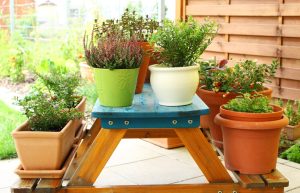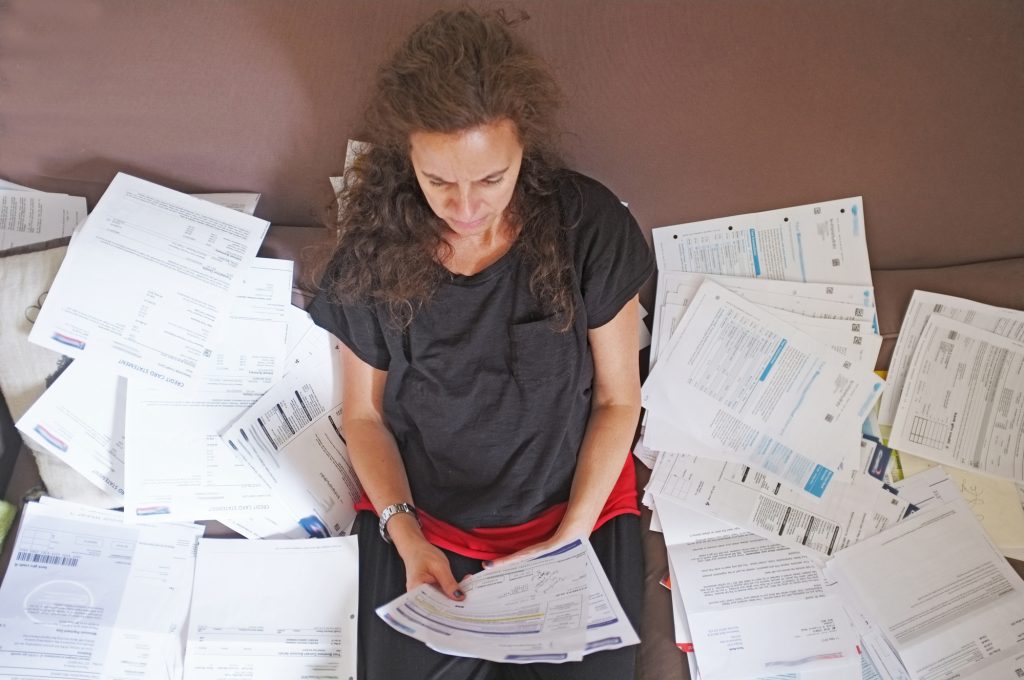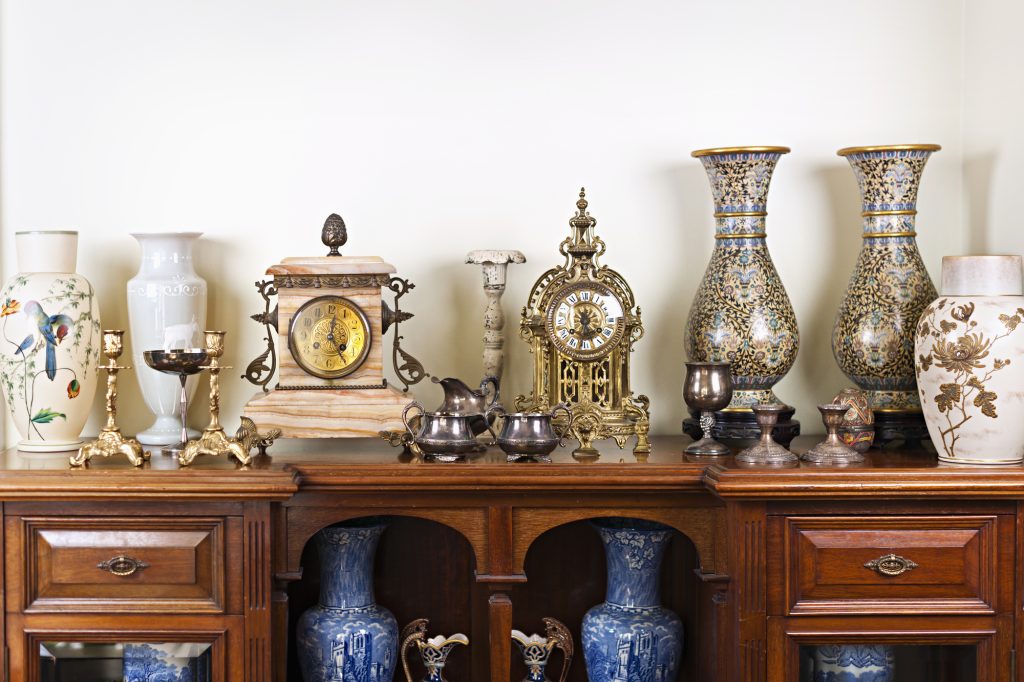Category: advice
Did you start the year off with every intention of being organised, being on time, and finding a better hiding place for presents rather than the boot of your car? Every year, many of us will say ‘I will be more organised this Christmas’ but every year Christmas comes around with bang, and organisation is the last thing on own minds.
If there is anything this year has taught us, give yourself a break! As we are all in the same boat!
No late night shopping trips, no panic buying, no day trips trawling the shops. It will most likely just be you up late with a laptop and a cup of tea, however do not fear, this can work! We have a few helpful tips to make Christmas run as smooth as possible while still being totally enjoyable.
Make a list.
Who are you buying for? It may seem so simple but without warning you can end up buying something for your next-door neighbour’s dog. Stick to the list! It is key for the when starting to think about Christmas.
Set yourself a budget.
Being honest with how much you want to spend on each person gives you control along with keeping things sensible. It is so easy to spend online without realising the cost. Once you’ve bought an item write it down next to the persons name; it is a great visual reminder of what you have spent!
Order 6 different wrapping papers.
1 for each person you will be able to see at Christmas. This means you don’t have to worry about labels, simply wrap each person’s presents one at a time to know exactly who’s is who’s. (Do make a note of which wrapping paper you use for each person!)
Shop Small.
Instagram and Etsy are fantastic platforms for small businesses. Over lockdown, small businesses took full advantage of the time and ensured they had an online presence. For Aunty Sue, why not get her a nice handmade soy candle rather than a plant. Instead if socks for other half, why not get them a hand designed and printed memory book. Your little girl, why not get a handcrafted dolls house to finally house all her dolls.
Think outside the box.
This year has been a little tospy turvy to say the least, so maybe you could arrange to have your very own Santa’s grotto at home? What about making a family hamper that you all share on your 6 person Christmas day? Make handmade cards and post them to your elderly neighbours (they will appreciate this more than you think)
Arrange a virtual gathering!
We did this so amazingly in lockdown, with family movie nights, quiz nights and virtual social gatherings to stay connected whilst keeping our loved one safe. Christmas is about connecting with people so get organised and arrange a date and time where all the family tunes in to celebrate.
Get yourself a hiding place.
Under the bed, in the loft, in the cupboard or maybe even in the car! Wherever you have tried to hide presents; I am sure that you had a few slip ups! With your very own private present cupboard surely this would make life a little easier? STORAGE ROOMS! We have you covered, with storage rooms from just 16sqft to over 270sqft. We also accepted your deliveries so you don’t even have to bring them to us, they will be ready and waiting for you to hide away out of prying eyes! Head over to our locations page to find out a little more about our facility.
Following those simple tips and ideas might just make your 2020 Christmas that little bit easier!
Happy Christmas Everyone!!
When you are planning to build an online business, understanding your marketplace can be key. There’s a number of things to consider to make the most of your e-commerce shop, with the main one being where you decide to sell your items.

Where should you be setting up shop?
There are plenty of online platforms for selling your products, but the best known have to be eBay or Amazon. Are these right for you though?
Both are huge, established marketplaces, which gives you the advantage of a large consumer base. Plus, your buyers already trust the platform and protection it gives them. However, you are competing against large numbers of established sellers, and both Amazon and eBay have higher seller fees than other platforms.
One of the main differences between the two is that you have a fixed price on Amazon, while you can choose to auction items on eBay, or sell them with a fixed Buy It Now price. Another is the way listings appear on each platform. On Amazon, if you have the same product as other sellers you are often listed on the same product description. The main way to stand out is to keep your prices low enough to be competitive, which could be a problem for small sellers.
On eBay, you have control over the pictures and wording you use to list your item, so spending time understanding how to make the best use of headlines and keywords can be beneficial. You can also compete more directly with large sellers, as buyers may have other priorities than just cost, such as timeframes – how soon the auction ends – distance and options to collect goods themselves.

Other options for online sellers
Etsy is a fabulous online marketplace for handcrafted and vintage goods. If your products fit into these areas, this could be the best option. Your goods will stand out more than on eBay or Amazon, and buyers come to Etsy specifically for something unique.
Another growing marketplace can be found on Facebook. However, it has limitations. Firstly, you need to understand the platform. There’s the Marketplace where you can list secondhand items, but you don’t actually sell them. If a buyer wants your goods, they contact you direct to arrange the details.
Then there’s your Facebook Shop. You need to set up a business page and then learn how to set up the selling element. Then there’s the marketing to bring buyers to your page. And that’s where Facebook can be hard work, as you need to build up engagement with your audience to be found. Starting your e-commerce business on Facebook can be a slow process, especially when you already have an established consumer audience on other platforms.
Building your own website
Another option for selling is to set up your own website and online shop. You have the immediate advantage of controlling everything yourself – prices, listings, descriptions and costs. You also won’t face immediate competition from other sellers, although you do have to consider that other people may be selling the same items, and today’s savvy buyers always shop about to compare prices.
To make the most of selling on your own site, you need to start with a great website. This doesn’t have to cost a fortune – in fact you can build your own online shop fairly easily. But you do need to understand things like SEO (search engine optimisation) and have an idea of how to market your shop to build up presence.
With your own shop you are also building up your brand, so if you also have a bricks and mortar shop, this is an obvious choice. Your customers will get to know you through your reliability and reviews, and you appeal to customers who don’t like the big platforms or prefer to support the local and smaller business.

A little bit of everything
When you are just starting your online shop, you might want to try everything. List some items on eBay and Amazon – or Etsy if your products fit – and build your own website as well. Then you can monitor and compare sales to see where you make the most profits.
Once your business takes off, you’ll need more space for your products. Keeping stock safe, organised and undamaged means you need a place for shelving, packing and a desk, with wifi to manage your orders. That’s where we come in. Call Cookes today to see how we help support online retailers to grow on 0121 250 5055.
It’s spring, the weather is warming up, and we’re thinking about gardening. Well, container gardening anyway. Growing your own vegetables in containers is an easy way to get started, and there are quite a few benefits.

You don’t need a lot of space
If you don’t have a lot of room in your garden, or only have a balcony or windowsill available, you can still grow quite a few vegetables in pots and containers. Tomatoes, for example, make a great choice. You can even grow some varieties in hanging pots, so there’s no need to use valuable floor space.
There’s more room for choice
Different vegetables grow best in different soil types. By keeping them in containers you can grow them right next to each other without difficulty.
Pain-free and hassle-free gardening
If the thing that puts you off gardening is all the weeding and heavy lifting, you’ll like container gardening. There’s very little weeding to do, and no heavy digging over of beds. Just put in your fresh soil, add seeds and away you go.

Vegetables can be colourful too
Vegetables can bring plenty of bright colours to your balcony space, if you wanted something cheerful as well as tasty. Vegetable plants can have pretty flowers on them, which will then grow into colourful veg such as red peppers and yellow sweetcorn.
You don’t have to worry about pests
Once the slugs and pests find a vegetable bed it’s hard work getting rid of them again. Protecting your container pots is far easier. Firstly, they won’t come under attack from beneath the soil. And the chances of pests finding your pots on the windowsill is much lower. If they do manage to get to your plants though, removing an infected container from the vicinity of the others, or netting it, is far easier.
Plants make your home brighter and healthier
As you probably already know, plants in your home also add more oxygen to the air, making your home healthier. When you are indoors a lot, some plants can do a lot to add a pleasant smell, improve your air quality and help you feel more cheerful.

Recycle and repurpose your containers
Although some vegetables like a deeper pot – carrots will grow best when they have more depth – you don’t have to go out looking for specific planters. If you’re spending some time this spring decluttering your home, you may well have a few things you could use as pots. All you need is something that will hold soil and drain well – serving dishes, tyres, or the drawers from an old cupboard, for example.
The whole family can help
If you need an activity to keep the children entertained, container planting is something they can help with. It doubles up as an educational activity and, once the veg have grown, they can enjoy eating them straight off the plant.
After all your planting and watering, you’ll have some lovely vegetables to enjoy in just a few months.
It may have started in America, but as with many things, self-storage is rapidly becoming more popular in the UK. More and more storage providers are opening for business and, according to the SSAUK, approximately 13% of households have used self-storage at some point.
With increasing numbers of homeowners and commercial businesses turning to self-storage as a simple and cost-effective solution to their storage needs, here’s a look at some of the more common reasons they do.

More bedrooms in the home
If you are expecting a new baby, you’ll need to turn your home office into a safe haven for tiny fingers. But you won’t want to get rid of the existing furniture – before long your baby will be moving back into big sized beds and wanting desks of their own.
Home office to work office
Talking of your home office, as your business expands you don’t want to keep boxes of stock in your house and taking over your hallways. The downside of working from home is that you can never quite escape it – but having a small office set up in your own storage unit keeps costs down, and your home life separate.
Moving house
When you are moving home a temporary bit of storage can come in useful. Declutter your current home and stage it for a quick sale, or store all your excess stuff until you are settled in to your new home and you’re ready to unpack at leisure.

A secure place for your tools
If your business depends on your equipment, it’s vital that you keep it safe and secure. Keeping tools in your van is risky, when one burglary later and you have not only lost expensive gear, you may well lose a few days work as well. Keeping tools in self-storage gives you a well-protected lock up and a place to repair, clean and maintain your tools as well.
Merging homes
You may be moving in with your partner, or your elderly relatives may be moving in with you. Either way, that’s two houses full of furniture, beds, kitchen utensils, plates, books, and bedding that need sorting through and thinning out. Using self-storage to keep things in means you don’t have to get rid of anything you love but have no space for, and you can take your time in dealing with the rest to get the best deals.
Seasonal storage
There are certain times of the year when you need to boost your stock – Christmas being the obvious one. Making sure you are ready for seasonal sales means ordering in additional products. With more room you can get more than you need, so you don’t have to turn down sales. Short term storage contracts make the perfect solution – your home or shop remains uncluttered, and your boxes don’t get crushed and damaged in small spaces.

Renovating your home or office
From simple redecorating to knocking down walls and remodelling rooms, renovating always creates a lot more mess than you expect. Move all your furniture or important office equipment out of the way for the duration, and you’ll avoid paint on your sofa or damage to your printer.
At Cookes Storage our units are available in a variety of sizes and with short and long term flexible contracts, so that you only pay for the space you need, for as long as you need it. With CCTV, PIN code entry and indoor units, you have all the security and protection you need to keep your stuff dry, safe and secure.
If you haven’t considered self-storage until now, let’s talk. We have all the space you need.
Losing a family member is a deeply emotional time. Sadly, we often don’t get a chance to really grieve before we’re plunged into dealing with the necessary paperwork and organising that comes with it.
If you’ve inherited a house full of stuff, you’ve got even more to sort out. However, this is one place where you feel under pressure to get things done, while what you really want to do is slow down.
Your inheritance might be the home you grew up in or of someone you were particularly close to, and it’s important to give yourself time to decide what to do with their belongings, and the property itself.

Bringing in some outside help
There are businesses who can help you empty and sort through the things in your inherited home. But you don’t have to bring in strangers. Don’t be afraid to ask a friend to come along and help you get started, even if that’s removing the everyday items such as toothbrushes, medicines, food from the kitchen and calendars from the wall.
Pick out sentimental items
More than likely there will be particular items that have sentimental meaning to you. Take a box to put these in, and put it aside so that it doesn’t accidentally end up in the wrong pile. Don’t forget to ask family members if there is anything they want to keep as well.
Priority paperwork
There are some things that need sorting sooner rather than later. You’ll need to find and prioritise the important paperwork – bills, bank accounts, insurance and so on. Gather together everything you’ll need, and make a list of the people you need to contact. It may be that bank accounts and financial documents can be passed on to the deceased persons accountant.

Donate, Sell and Recycle
After the initial burst of organising is over, you’ll be left with a house full of things to sort out. There is no right or wrong way to go about this, but you may find it easier to work room by room, as otherwise the size of the job can become overwhelming.
Sort everything into piles – things to keep, things to donate, items that you can sell and those that need to be recycled or binned.
The kitchen may be one of the easiest rooms to start in. A lot of the items will be less personal and duplicate of those you have at home – cutlery, cooking bowls and mixers. Pick out anything you might want to replace those you have at home, and place the rest for donation.
As you sort through the house you will likely come across items that may be of value. If you don’t know how to price them, then put these aside until you have time to investigate further. Many local auction houses will provide a free valuation and, if you have a sizeable amount of items, the auctioneer will visit the house to give you an overall opinion. It is also possible to email pictures of larger items to them, such as furniture, for an idea of whether auction is the best route.

Items you want to keep
Finally, consider the items you would like to keep. There can be practical reasons to keep extra furniture and household items. If you have children that will soon be moving into their own homes they will need beds, sofas and so on to get started, while if you plan to let the house to tenants, you may keep some furnishings.
Some items, furniture in particular, can be hard to get rid of, especially if it’s a larger piece or out of fashion. You might not want it in your own home, but feel reluctant to part with it. You may also have a pile of belongings that you just aren’t ready to part with for sentimental reasons, or want to leave for a while before you tackle them.
Giving yourself time to grieve is perfectly understandable and necessary, rather than making rushed decisions that you later regret. Unfortunately, we often don’t have the luxury of time to deal with a loved one’s belongings, as we need to deal with the property itself.
Placing these items into a self-storage unit is a cost-effective way to keep them safe and dry. You’ll have time to decide what you want to do with them, or until you need them. Meanwhile the property will be empty, and you can decide whether to sell it or keep it on.
If you need help moving your furniture or boxes into storage, please ask us about our free collections service. Our experienced in house team can help collect your items and place them inside your self-storage unit, giving you one less thing to worry about at a difficult time.
You’ve rented your storage unit, you have a van full of much-loved furniture and precious heirlooms – and now you need to put it all in your unit. It sounds simple, but it is worth putting a little forethought into how you use up your space.
Here’s just some of the things you need to consider when you’re unpacking your van.

Plan what you’ll need in advance
How you stack your storage until will depend on what you intend to use it for. If your unit is an extra cupboard, a place to keep your Christmas decorations, seasonal sports gear or garden tools, you might want some racking installing to help keep things organised and accessible.
If you do without racking, then put the items you use most frequently towards the front of the unit, to save having to lift everything out of the way each time you want to get in.
If you plan on long term storage of your furniture, plan on putting the heaviest and largest items of furniture in first. That way you can carefully pile smaller boxes and fragile items on top of the furniture, keeping them from being crushed and making the most of your room.
However, customers in the middle of a house move may find it easier to put the largest items of furniture in last. That way, when you open your storage unit they are right at the front, ready to go into the removals van first. If you are moving in a couple of trips, this also means you can get all the furniture into your new home and in place, before returning for your small items.
Take care of your sofa
One of the things we see most often is damage caused to items that are badly stored. You might think that standing your sofa on end in the unit is a great way to make the most of your available space. However, take a look at your sofa arms first. Are they strong enough to take all the weight for a long time?
If you do plan on stacking your sofa on end, wrap the arms in cardboard to protect them from scratches r fabric tears and stains. The space you save in the short term is not worth the cost of damaging your expensive sofa.
Wrap and protect your furniture
Protect the surfaces of your larger items as well. Taping some cardboard onto table tops before you pile your boxes on will help prevent marking.
Make sure you place furniture the right way up. If you stack your table upside down, or lean it against the wall without care, you could end up with scratches that are visible for ever more.
Use some bubble wrap to cover sharp corners. It will stop them being knocked as they are carried from van to unit.

Use strong boxes for smaller items
There’s a tendency to grab any old cardboard box to store our smaller items – often saved from deliveries to our homes. However, using purpose made storage boxes may save you some cracks and breakages.
Large cardboard boxes may not be so strong in the centre, particularly when overfilled with heavy items and stacked in a pile. Using the same sized boxes will also make piling things up a little easier – no balancing unstable pyramids in your unit.
Don’t forget to label your boxes so you know where everything is – and so you can place fragile items at the top of the stack.
Make use of the space
Make sure you make the most of the height of your unit. Careful planning will ensure that boxes can pile up high without falling, and furniture can be stood on top of each other as long as it’s done carefully.
It’s very easy to over or underestimate the space you’ll need for your furniture and boxes. Our team are able to advise you on the size unit you need, so that you are not left with a mass of unneeded floor. A badly packed unit can mean you leave plenty of unused space that you cannot access, and the need to rent a second unit, which could have been avoided.

Choose a reputable moving firm
If you choose to use a moving firm, take your time in choosing the right people. Don’t assume they will wrap your furniture before placing it in your unit – it’s best to do it yourself first.
Cost is also not always the most important consideration – if the firm you choose is rushing, they may take less care in placing items in your unit. This means more chance of damage and less care in using the space wisely.